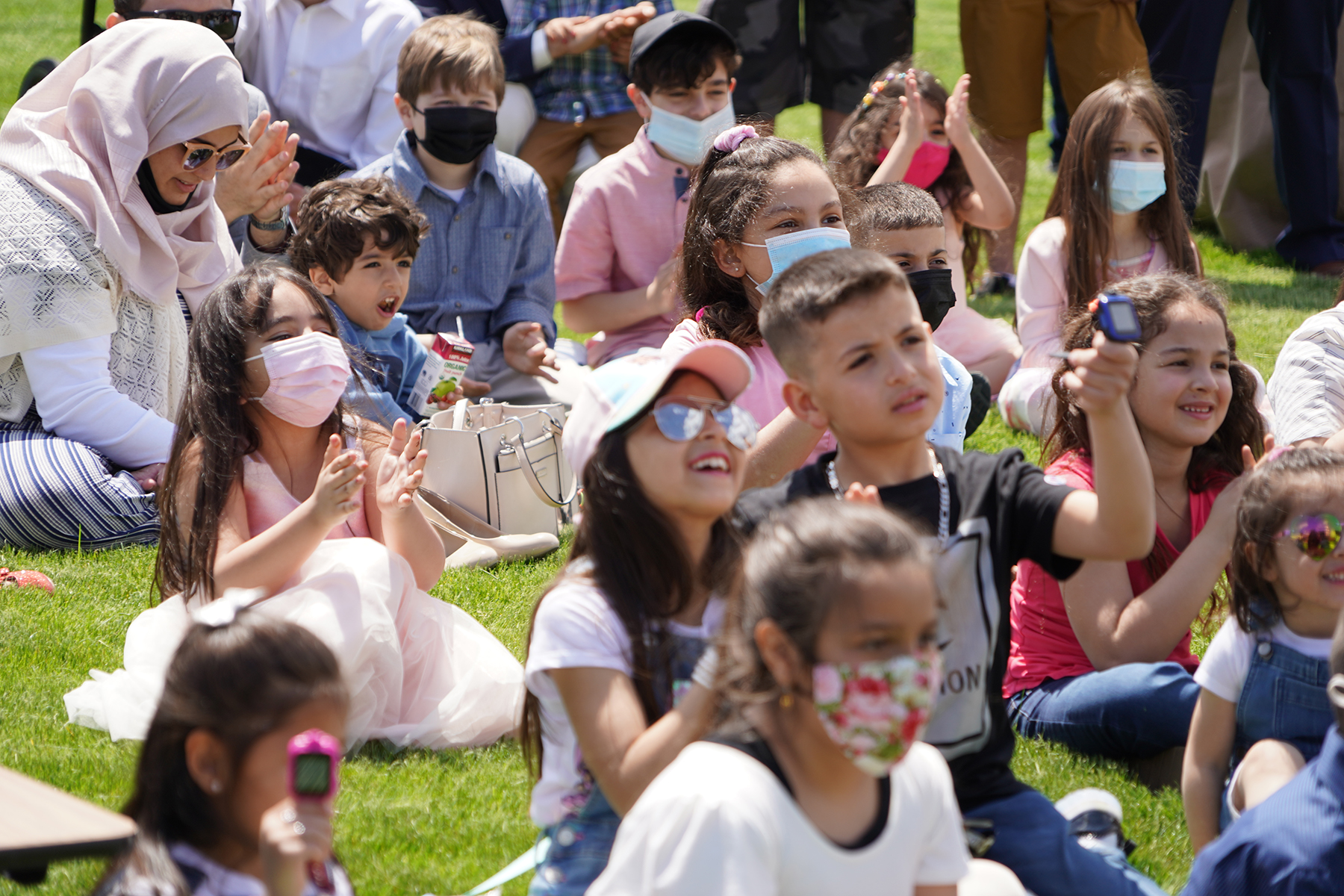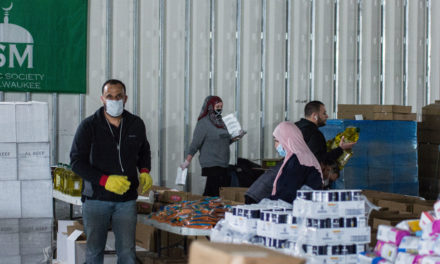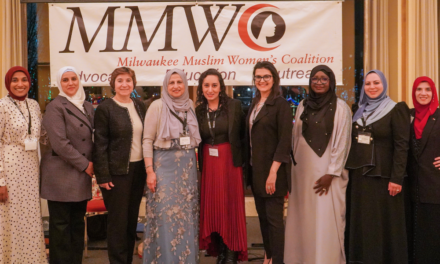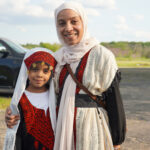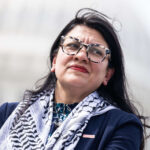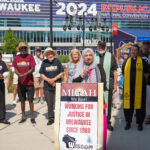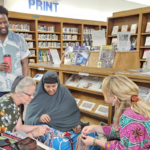Children learn Arabic at the Milwaukee Muslim Women’s Coalitions’ Children’s Reading Program.
Photo by
WMJ
Teaching our children formal Arabic in America’s heartland feels as challenging as training for the Olympics, especially if we don’t know it that well ourselves. We start with the alphabet, maybe some songs. Then what?
We know it must be done. Many Islamic scholars, including companions of the prophet, have stressed the importance of learning Arabic. In addition to an array of intellectual benefits that come with learning a second language, the ability to understand Arabic strengthens one’s Islamic identity, a valuable asset to Muslim youth. Most important, they will be able to read and understand the Quran.
Learning Arabic is not only beneficial; it is a duty. As medieval scholar Ibn Taymiyyah wrote, “For the Arabic language itself is from the religion, having knowledge of it is an obligation because understanding the Book and the Sunnah is an obligation. And (the religion) cannot be understood except by understanding the Arabic language, and that without which an obligation cannot be fulfilled is itself obligatory. Then from it is that which is obligatory upon everyone individually, and from it is that which is a collective obligation.” (al-Iqtidaa p. 295).
There’s good news! Research in second-language learning indicates even those not immersed in a new language from an early age can still master it, though maybe not to the same degree of as those exposed from early childhood.
How children learn a second language
Immigrant parents will marvel at how quickly their young children learn English. The way preschoolers pick up English with minimal effort seems miraculous. And it is. Research shows that young children have an innate ability to learn language – one or multiple languages.
This type of learning is called “implicit.” It happens when children are immersed in a new language over a long period of time. In the same way children learn their mother tongue, they learn a second language—through constant exposure, often through playing games and memorizing songs.
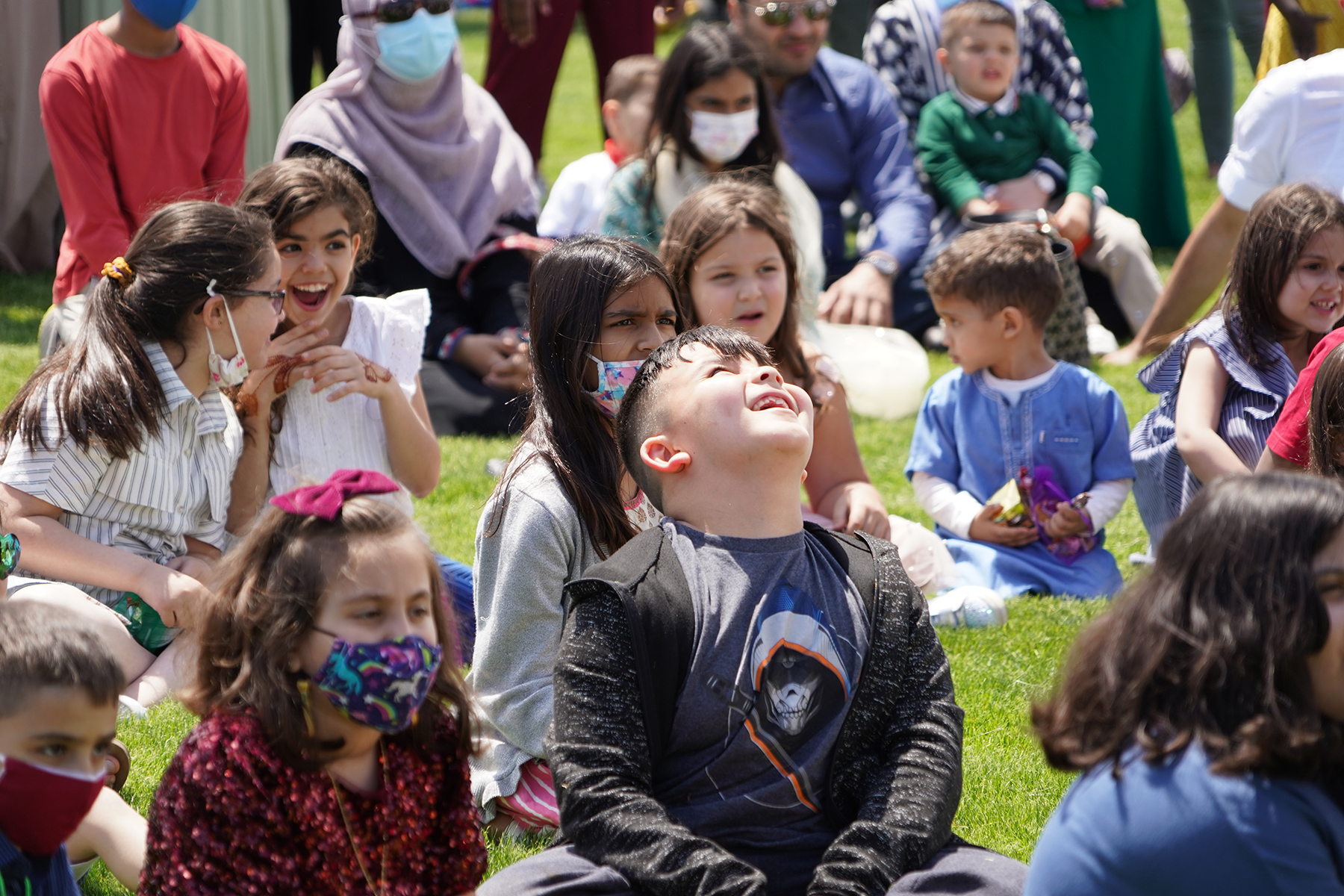
Creating the conditions for complete immersion in Arabic is difficult, if not impossible, for those of us living in Wisconsin, even if both parents are fluent in Arabic. English is everywhere – in street signs, billboards and social media, conversations with neighbors and playmates, on television shows and cartoons.
Of course, parents can consciously expose children to more Arabic through watching Arabic television programs and speaking Arabic at home. And while exposure to spoken Arabic is helpful, the dialect used in conversation is different from the Arabic of the Quran.
Another type of language learning is “explicit.” It is the type of learning that takes place in a classroom, where teachers point out patterns and help children learn grammar by explaining how it works. They may ask students about what parts of words mean or how sentences are put together.
Students approach explicit language learning analytically and with deliberate effort. Research shows this method of learning improves over time as students grow in their understanding of language systems.
Parents need not choose between an implicit or explicit approach. The methods can complement one another.
New research suggests that children’s language-analytic ability (the skill of learning explicitly) is more important, followed by phonological awareness. Memory ability was only marginally relevant. It also notes that children as young as 8 or 9 years old can learn explicitly to some extent if the teaching method used encourages them to engage in analysis of the language to be learned.
The study’s authors, Karen Roehr-Brackin and Angela Tellier, both at the University of Essex in England, note that children of primary school age are still developing their ability to learn explicitly. “Therefore, we cannot expect to teach them languages in exactly the same way as we would teach teenagers or adults.” Nevertheless, they recommend using activities that encourage children to consciously reflect on and analyze the language “like scientists.”
Tips for parents

Reading to children is one of the best ways to teach language skills.
Educators and Muslim bloggers provide helpful suggestions for parents who want their children to learn Arabic. Wisconsin Muslim Journal has compiled a few of them here and provided links for those looking for more.
- Be an Arabic language learner yourself. Your children will learn from your example.
- Read age-appropriate Arabic books to your children. The Islamic Resource Center, 5235 S. 27 St., Greenfield, offers children’s books in Arabic (as well as in English) that encourage children’s understanding of both Arabic and Islam.
- Make lessons short and consistent. For young children, a few minutes a day, every day, goes a long way.
- Make it fun. Kids are more attentive when they engage in play. Language learning apps and games are helpful tools.
- Enroll them in age-appropriate Arabic summer, after-school and Sunday school learning programs.
Useful links:
https://ayeina.com/instill-love-of-arabic-in-kids/
https://themultilingualhome.com/how-to-teach-arabic
https://www.parents.com/baby/development/intellectual/how-to-teach-your-child-a-foreign-language/
